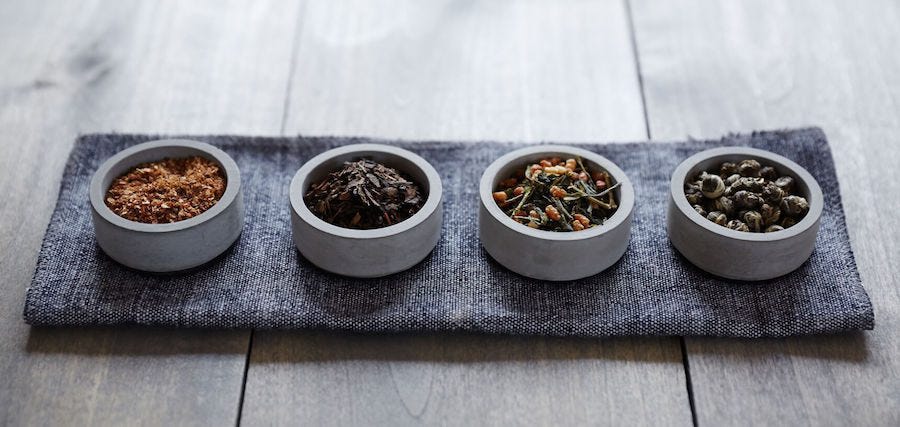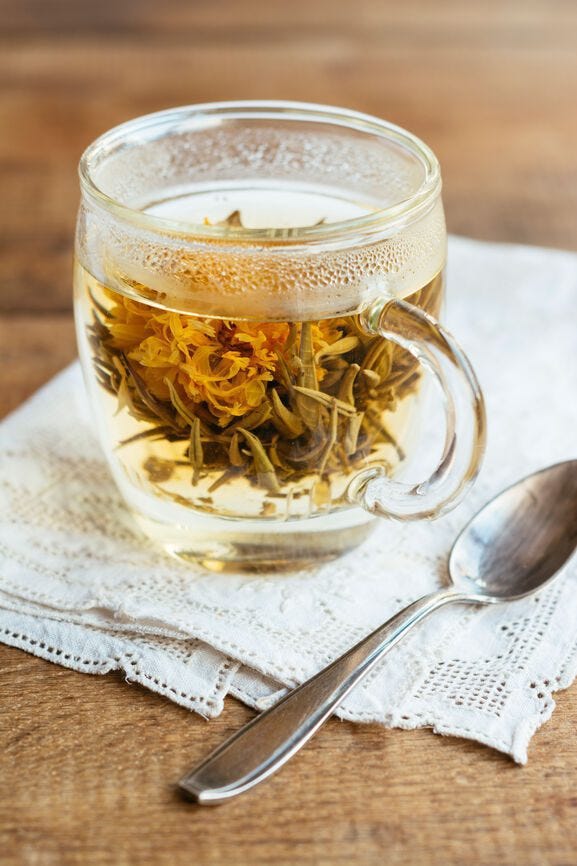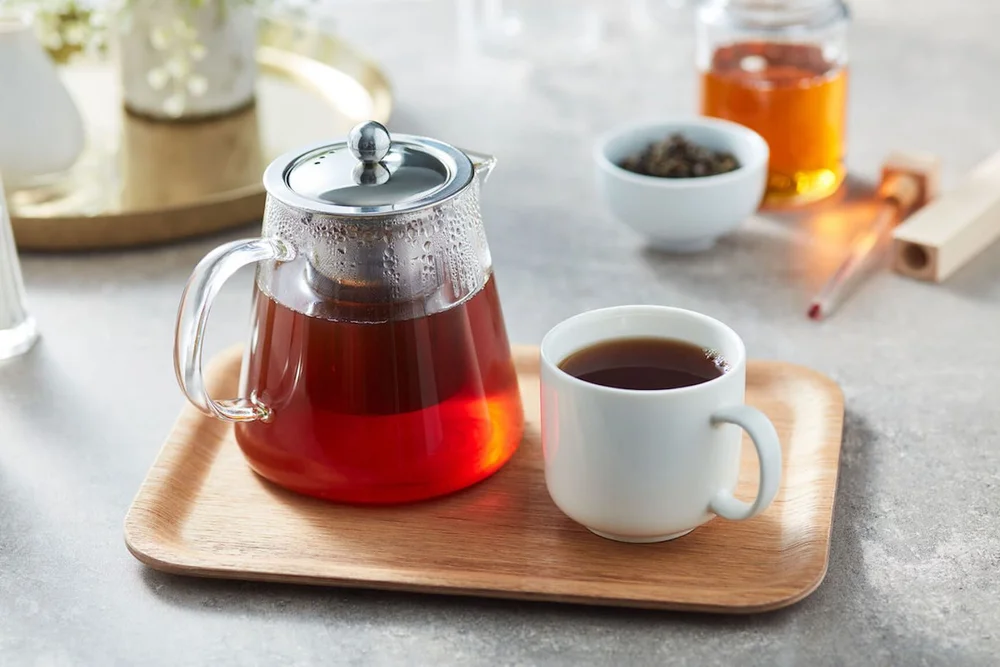Some of the Best Teas to Keep You Warm This Winter
It’s the time of year when colder weather drives people indoors, where a crackling fire and warm beverage can help thaw the winter chill. But beware! Some hot beverages are healthy, and others aren’t.
Beverages to Avoid
A go-to beverage on a cold day, especially if you’ve been outside in the crisp air for an extended period, is hot chocolate. Although this beverage is irresistible to many, especially chocoholics, many commercial brands of hot chocolate are loaded with sugar, unhealthy fats, artificial chemicals with names too long to pronounce, and excessive calories (and let’s not even get started on marshmallows). All these unhealthy elements can negatively affect your health and weight.
Another common beverage trap during the winter season is coffee. In addition to its high caffeine content, coffee becomes less healthy the more you put in it. Though tempting to purchase on a chilly day, seasonal beverages offered at popular coffee shops typically consist of a small amount of coffee with a large amount of sugar, dairy, syrup, artificial sweeteners/flavors (which also contain those long names you can’t pronounce), and other unhealthy fillers.
Beverages to Embrace
A hot beverage that’s been enjoyed for thousands of years is still one the healthiest…tea. Many teas are high in antioxidants and have calming effects (like chamomile). Most teas are low calorie, low in caffeine and sugar-free. Many teas are created by adding natural citrus flavors (orange, lemon, etc.), oils (peppermint), or flowers (hibiscus) to dried leaves of medicinal herbals.
Drinking a cup of warm tea can help relieve stress and lift the spirits. Its many health benefits make tea an ideal alternative to coffee. If you rely too heavily on coffee to get you through the day, gradually wean off coffee and introduce tea into your diet.
If you’re looking for an alternative to coffee and hot chocolate this winter season, here are 8 healthy and delicious teas you should try…
8 Healthy Teas to Drink this Winter

Green Tea
A staple in many Asian cultures, green tea is made (without fermentation) from leaves of the Camellia sinensis plant. It contains high concentrations of polyphenols (substances that have antioxidant properties), which support healthy blood pressure levels and promote blood flow to the brain. In addition to green tea’s powerful circulatory benefits, it also helps reduce stress, improve intestinal bacterial balance, and increase carbohydrate and fat burning. Green tea also naturally contains l-theanine, which can enhance mental focus yet has a calming effect without making you sleepy. It only has half the amount of caffeine compared to coffee.
Black Tea
Black tea is made by fermenting green tea leaves. Though its polyphenol profile is different than green tea’s, black tea is still a very healthy beverage. Black tea serves as the base for many other types of tea, including chai, Earl Grey (which includes oil of bergamot) and some brands of instant tea. Black tea also has powerful circulatory benefits, including supporting healthy blood pressure levels. Drinking black tea with a meal also can slow sugar absorption and lessen its impact on the body.
Oolong Tea
Oolong tea is produced by partial fermentation of specially cultivated varieties of green tea leaves. After drying the plant under intense sunlight, oolong tea is then rolled into long curls. There are a variety of oolong teas with varying flavors; from sweet and fruity to woody and complex. Oolong tea has many health benefits; it helps maintain memory with aging and promotes a positive mood. As a bonus, oolong tea can help you burn more calories than green tea.
White Tea
This tea involves no fermentation and is made from young green tea leaves that are just about to open (they have a white fuzzy covering, hence the name). White tea is minimally processed, has more polyphenols than green or black tea, and has less caffeine. Despite its name, white tea is a pale yellow when brewed.
Pu-erh Tea
Pu-erh (or Pu’er) is a dark tea that comes from the Yunnan province of China and is produced by bacterial fermentation. Pu-erh tea is often described as robust and earthy. Due to its fermentation process, Pu-erh tea is rich in antioxidants. This tea may help with fat-burning and is associated with a more positive mood. As you shop for it, make sure the brand is low in fluorine, which can be toxic.
Red Tea
Red tea (rooibos) comes from a fermented South African herb (redbush, Aspalathus linearis) and has an orange-red color when brewed. Red tea is loaded with unique flavonoids that help slow the absorption of sugar and fats and may be more effective than other teas at improving blood antioxidant protection. Rooibos is free from caffeine.
Jasmine Tea
Jasmine tea has a green tea base (less frequently, black or white tea) and is scented with fragrant jasmine blossoms. It has been popular in China for hundreds of years and was one of the first flavored teas to reach the West. Jasmine tea is rich in antioxidants and helps support brain function. Its sweet aroma can help to enhance mood.
Ginger Tea
As its name indicates, ginger tea is made from the ginger root which is similar to the turmeric root. It carries the signature aroma and spiciness associated with foods containing ginger, and its main active substances are gingerols and shogaols. In the Ayurveda tradition, ginger is widely revered as a food, spice, and medicine. It helps improve the circulation, is protective for the brain, and is especially sought out for its digestive benefits and its capacity to counter nausea, including from motion sickness.
Though these are just a sampling of popular teas, there are hundreds of other variations and herbal blends derived from these teas. Practically any medicinal herbal can be made into a tea. With such a selection to choose from, you’re sure to find at least one healthy tea you’ll enjoy. Since most teas are inexpensive, drinking tea is a cost-effective way to improve your health…as well as help keep you warm this winter.
At BrainMD, we’re dedicated to providing the highest purity nutrients to support your brain health and overall well-being. For more information about our full list of supplements, please visit us at BrainMD.
- This Is What You Need to Know About HBOT
Medically Reviewed by Dr. Nicole Avena - April 22, 2024 - Hormone Changes in Men: How to Know If You Have Low Testosterone! - April 15, 2024
- This Is What You Need to Know About EMDR Therapy! - April 11, 2024


What is there for me to drink, if I’m allergic to tea?
If I drink any kind of tea five days in a row, I get an allergic reaction. I get a rash in my ankles joint, and the rash will move up to my calf. This rash is very, very itchy. It only goes away weeks after I stop drinking tea.
What an extensive article and so helpful for anyone looking for a health boost. Another benefit of green tea is that it contains catechins that are actually considered to be neuroprotective agents. Although more research needs to be done, green tea may help to reduce the risk of developing certain brain degenerative diseases!